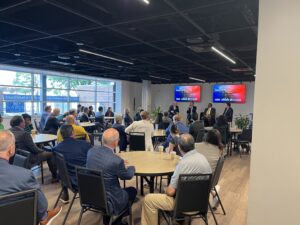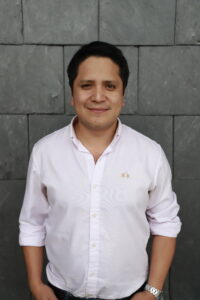November is National Lung Cancer Awareness month and locally, it’s something everyone needs to give more attention. As many long-time Chattanoogans remember, in the midst of the industrial revolution of the 1950s and 1960s, our air was thick with pollutants. Back in those days, cigarette use was not only accepted but encouraged with the placement of ashtrays everywhere from offices to hospitals.
Thankfully, those days have long passed, but for many in our community, the impact is still felt. According to the American Cancer Society, about 20 percent of people who die from lung cancer each year in the U.S. never used tobacco and today, women make up two-thirds of nonsmokers diagnosed with lung cancer.
As a member of the Society of Thoracic Surgeons, Dr. Rob Headrick is working with the group to lobby for the Women and Lung Cancer Research and Preventive Services Act. The bipartisan legislation would direct the Department of Health and Human Services to allocate existing research funds to study the issue. But Headrick’s passion for curing lung cancer doesn’t stop there.
“If we can catch lung cancer at a stage one, it is likely curable,” Headrick says. “Lung cancer doesn’t have any symptoms until it begins to progress. Usually a cough will last longer or the voice will become a bit raspy and there could be a drop in weight. A simple screening that shows the lungs in 3D allows us to catch it in its earliest stages.”
Headrick notes that Tennessee ranks fourth in the country for lung cancer incidence and that he also has concern for some of our community’s youngest residents: school children.
“Currently, none of our schools are being tested for the possible presence of Radon,” Headrick says. “Eight hours of exposure to Radon is like smoking a half pack of cigarettes. Testing is inexpensive and easy to obtain. It’s my hope that schools will incorporate regular testing into their plan for providing healthy learning environments for our children.”
Radon is a radioactive gas from the normal decay of uranium, thorium and radium in rocks and soil. It's an invisible gas that seeps through the ground and diffuses into the air. We breathe it every day at low levels. But in areas without adequate ventilation, it can accumulate to levels that substantially increase the risk of lung cancer.
Last May, the American Cancer Society published research in the New England Journal of Medicine that provided new focus on the disease among Caucasian and Hispanic females.
“We simply don’t know why lung cancer is occurring in Caucasian and Hispanic females at higher rates,” Headrick says. “My hope is that we obtain funding to study the issue so we can put technology to work to save lives.”
For those 50 and older, especially with tobacco exposure, lung screenings should become part of your annual health exam. The actual screen takes less than five minutes. In fact, the paperwork for insurance takes longer to complete than the actual screen. No preparation is needed and results are read immediately afterward.
“As patients become more tech-savvy, they are going to rightly expect to see outcomes from tests like these,” Headrick says. “We now have the technology and the expertise to provide another tool to individuals to safeguard their health. Thanks to mobile screening, our region now enjoys accessibility to these tests. My hope is that within 10 years, lung cancer becomes no big deal because we can capture it at its earliest stages and treat it.”

ABOUT DR. ROB HEADRICK
Dr. Headrick is a local thoracic surgeon who leads a team responsible for providing care throughout the region. He also serves as Assistant Professor of Surgery at the University of Tennessee College of Medicine in Chattanooga, Tennessee. In this capacity, Headrick is responsible for resident education in Thoracic Surgery, designs and implements clinical rotation for fourth year General Surgery Residents, supports didactic conferences and research projects and mentors residents planning to pursue a Thoracic Surgery Fellowship. He was awarded the Health Policy and Leadership Scholarship ACS/STS in 2017, the UTCOM Resident Teaching Award in 2014 and the STSA Physician Inspiration Award in 2013.
Dr. Headrick earned his MBA from the University of Tennessee, completed his Thoracic Surgery Residency at the Mayo Graduate School of Medicine, completed his General Surgery Residency at the University of Tennessee College of Medicine, earned his MD from the University of Tennessee College of Medicine and earned a Bachelor of Science in Biomedical Engineering from Vanderbilt University.









